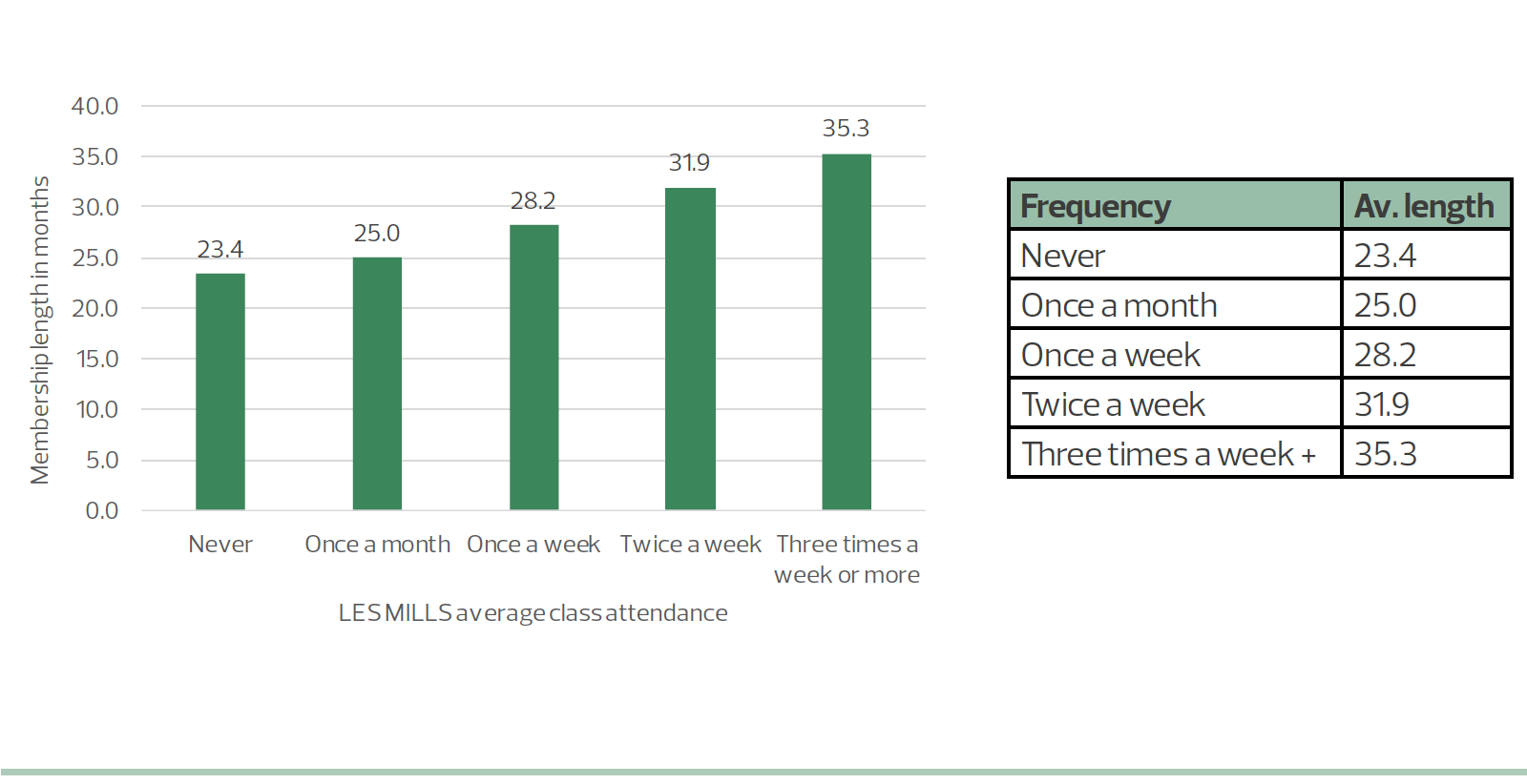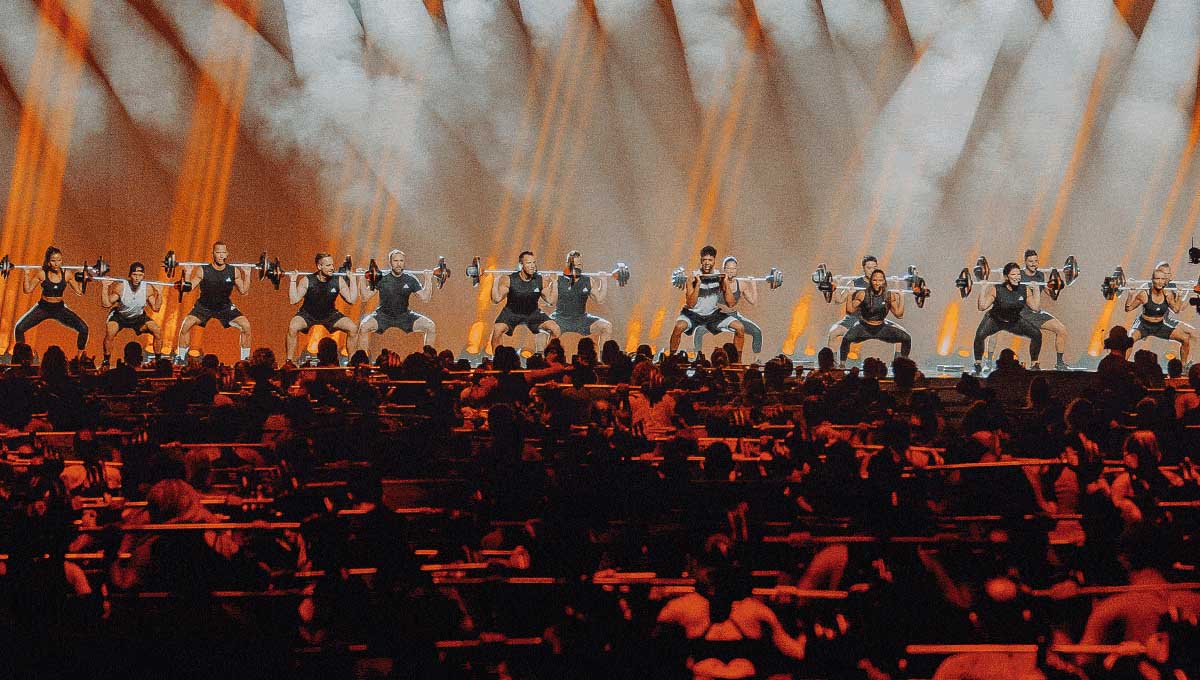
As clubs contend with the ongoing global pressures of inflation, an energy crisis and constrained consumer spending power, balancing the books continues to prove challenging.
Group training can often face scrutiny in such times because it shows up as a cost on the Profit and Loss Statement, rather than a revenue stream like personal training. But that of course, only tells half the story.
The most successful operators recognize that crowded group training studios are the cornerstone of a successful retention strategy. After all, you have to sell an awful lot of PT sessions to make ends meet if you’re losing half your members each year.
But leading clubs don’t just leverage group training for retention – they double down on this strength to generate additional revenue streams. So what does it take to strengthen cash flow through your studio? Here are seven simple steps to transform your group training offering into a profit powerhouse:
1. MAP OUT THE OPPORTUNITY
One of the first steps to realizing a highly profitable group training offering is to identify how much revenue group training (both in-club and via at-home digital) is contributing to various areas of your business. It may not yet have its own income stream on your P&L, but you can almost guarantee that group training accounts for a significant proportion of other streams.
A study by the ukactive Research Institute found members who do 3 or more Les Mills classes per week stay with their club for 50% longer than those who don’t do classes – equating to an extra 9.8 months of dues per member. In other words, the members who were doing regular group workouts had twice the lifetime value of gym-only members.
The graph below shows how the average membership length of live members differs by the rate of attendance to Les Mills programs. The importance of regular attendance is highlighted by the consistent increases in membership length as the frequency of class attendance goes up.

As some of the group’s largest facilities in the US, Gold's Gym Newburgh and Middletown in New York are renowned for the strength of their group training offerings.
“All the research shows that nailing group workouts is key to driving retention and winning member referrals – it's been a real game-changer for us,” says owner and managing partner Don Murphy.
“We started working with Les Mills in 2004 and it's been an integral part of our growth. It’s led to so much more business success, primarily because we knew how to implement the system, not just a program. Too often, operators don't take advantage of the entire system – not just with Les Mills, but also with other vendors’ services and products. So they don't realize the value of what they have at their fingertips. If you have a champion to really drive your entire group fitness system, that's what sets you up for strong business success.”
2. MARKET YOUR ROCKSTAR INSTRUCTORS
Tapping into influencer culture, which resonates with modern members and their love of social media, is a great way to highlight the power of the studio and pull new members into your facility. Rockstar Instructors have the ability to turbocharge your marketing strategy, and social media – the natural habitat of the Influencer – is the quickest and most effective route for connecting with your prospects.
Having great people is particularly important for persuading prospects to pick your club over others. 30% of club prospects say “a good atmosphere” is a key factor in choosing a gym to join, while 31% of Gen Z prospects are drawn to the guidance of an Instructor.
Ask your Instructors to hype their classes online, and showcase the experience participants can expect when they turn up. Consider incentivising your Instructors’ social media efforts by rewarding them with training opportunities, gifted leave or financial incentives. Creating smart win-wins that bring in new joiners will mean you can afford to share the spoils.
3. DOUBLE DOWN ON REFERRALS
One of the reasons group training can be so effective for driving revenue is because members love it. Again, the role of the Instructors is key – their ability to fan these flames and inspire your members to do your marketing for you (by referring lots of their friends) is unparalleled. High-quality Instructors are 2.5 times (144%) more likely to win member referrals for your club (than a poor Instructor), according to the Global Fitness Report. And in an age of social media ubiquity, making sure your studios are Instagram-friendly and well-branded is vital for inspiring members to get snapping and sharing so they capture the attention of their friends – your members in waiting. Get this right and members become a major cog in your social media machine and will soon be doing your marketing for you.
4. EMBRACE EVENTS
Events are a dynamite way to create excitement among members and Instructors, as well as to attract new members through your doors and drive revenue. Diana Gilbert, Senior Director of Fitness at Chuze Fitness says events are key to member retention, thanks to the feel-good factor they bring. “Members want to participate in building and infusing value through their community,” she says.
“As club operators, it's our responsibility to create the opportunity for that, bringing like-minded people together, sharing experiences and engaging with one another around group movement.”
One way to bring this to life could be to follow the lead of the YMCA Association of Northwest North Carolina, which kickstarted its peak sales period with a group training rock concert as a means of engaging the community through a dynamic event. Consider as well the opportunity events present for prospects. By showcasing your club and its members at their engaged best, you’re giving new faces a glimpse of the excitement that awaits them.

5. DIAL UP THE SOCIAL FACTOR
In addition to high-octane events, clubs are ideally placed to meet the more basic daily needs around community and human interaction that consumers crave. The social aspect of group training is perfectly designed to support the modern members’ well-being goals. Recent research discovered that 1 in 2 people with high levels of well-being are working out with other people, compared with 1 in 4 with low levels of well-being.
The Gen Z Fitness: Cracking The Code 2023 report found that group training is the second most popular activity for younger members to do at the gym, with 81% of those who currently work out taking part. They cite the energy of the group as a key driver for their love of the studio, so tapping into and promoting the social experience is key.
And it’s not just those already in-club that facilities should look to target with group training. 35% of all exercisers started going to an in-person class they first discovered online, suggesting untapped revenue streams exist within your online community.
6. FOCUS ON SMALL GROUP TRAINING
Tapping into red-hot trends with small group training can be a powerful approach to creating new revenue streams. Strength training, the most popular workout of 2022 for all ages and Gen Z’s favorite group training format is the workout members can’t get enough of right now. Dutch facility Lifestyle & Health Club Magic recently leveraged the appeal of this training modality with LES MILLS STRENGTH DEVELOPMENT™, generating an additional €249 per participant for each limited-time course.
Scott Elder, founder of Lifestyle & Health Magic, says: “STRENGTH DEVELOPMENT delivers on improved strength and gives participants an excellent grounding for when they’re ready to move on to free weights. It’s a great add-on for the club, which builds a buzz among members and generates more revenue.”
7. DRIVE DIGITAL REVENUE
Much like society’s hybrid working models, modern members now expect a blended approach to fitness. The good news for operators is Omnifitness – providing fitness experiences everywhere, through all channels – isn’t an ‘either/or’ training approach and doesn’t need to detract from what you do well already. Digital can be added as a complementary part of your toolkit for meeting the needs of modern members. The Global Fitness Report shows 80% of gym members plan to continue using digital workouts, with the majority favoring a 60:40 split between live sessions in-club and digital workouts at home.
Failing to offer digital workout options can ultimately cost your club members, warns Lauren Bacigalupi, Greater Philadelphia Y Chief Marketing Officer. “Every fitness facility is a content provider and having a digital component to this offering is now table stakes,” she says. “It’s what consumers expect and operators who ignore this are at risk of having their members leave them.”
WANT TO RAMP UP REVENUE FROM GROUP TRAINING?
Delve into our comprehensive array of tools and insights to help transform your studio into a profit powerhouse.
GET THE EDGE